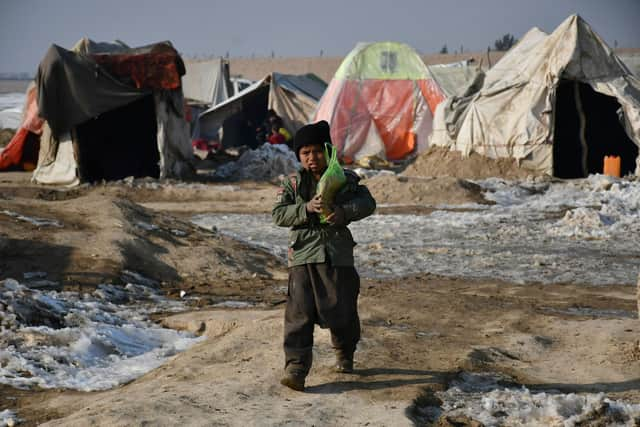Why has the United Nations cut back its international funding request despite increased need?
The United Nations has cut back its request for international funding by 20 per cent this year – despite a growing number of humanitarian crises around the world.
The number of people displaced from their homes by conflict or climate emergencies is at record levels for this century, the UN said.
Advertisement
Hide AdAdvertisement
Hide AdIt is estimated by UN agencies and about 1,900 partner organisations that around 300 million people around the world will require urgent humanitarian assistance next year.


However, launching its Global Humanitarian Overview on Monday, the UN requested a total of $46 billion (£36.6bn), compared with the $57bn it sought in 2023.
Why has it reduced its request for funding?
The organisation says it has been forced to focus its appeal for 2024 on aid for those in only the most life-threatening circumstances - as support from the international community is "not keeping pace with the need".
“It’s not because there is no need,” said aid chief Martin Griffiths.
“The necessary support from the international community is not keeping pace with the needs.”
He said that so far this year, donations amount to $20bn – around a third of what was needed.
Are the demands for funding any less?
No, in fact, the opposite is true. The UN points out that world is experiencing more conflicts, which are more entrenched, with “devastating consequences” for civilians. Almost one child in every five around the world is living in or fleeing from conflict zones, while the situation in Gaza has left hundreds of thousands of people requiring humanitarian assistance.
Has the lack of funding over the past year had any consequences?
Advertisement
Hide AdAdvertisement
Hide AdYes. The UN pointed to the situation in Afghanistan, where 10 million people lost access to food assistance between May and November, while Myanmar witnessed over half a million people forced into inadequate living conditions.
It said people in Yemen also face a dire situation, with more than 80 per cent of targeted individuals lacking proper water and sanitation, and in Nigeria, only two per cent of women in need of sexual and reproductive health services and gender-based violence prevention received the necessary aid.
Comments
Want to join the conversation? Please or to comment on this article.
